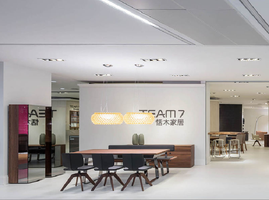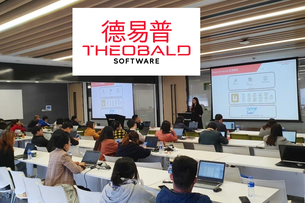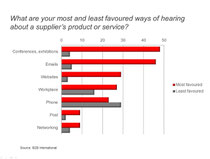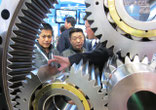News and blogs from Zentron Consulting
Please refer to the German site for more articles.
Telling "A Tree Story" in the Chinese language – a Chinese brand name for TEAM 7

Intelligent ceramics – Chinese naming for the 3D printing system provider Lithoz

To enter the Chinese market, you need in-depth market knowledge, a clear strategy and plan, a reliable sales partner... and, last but not least, a suitable Chinese brand name. (Why is a Chinese name important? Read this blog.) The Chinese name for Lithoz, 俐陶智 (pinyin/transliteration: Lì Táo Zhì), created by Zentron, is distinctive, relevant and at the same time phonetically similar to the original name.
Nurturing and retaining purity – Biogena in Chinese

In order to make Biogena approachable for Chinese consumers, Zentron created a Chinese brand name: 葆淳 (pinyin/transliteration: Bǎo Chún). In addition to the phonetic similarity to the Latin name, the Chinese name also embodies the unique selling points of the brand.
(Why is a Chinese brand name important and how can you create one? Read this blog.)
German virtues easily popularised - Chinese name for Theobald Software

Before the German software provider Theobald entered the Chinese market, founder Patrick Theobald was looking for a suitable Chinese brand name that would represent the company's values and resemble the phonetics of the German name. The name 德易普 (pinyin/transliteration: Dé Yì Pǔ) created by Zentron fulfilled both criteria.
Zentron Consulting is expanding with an engineering division

Zentron Consulting, previously specialising in marketing in China, is now also offering engineering services (as an engineering firm) in mechanical engineering. The core competence for technical services remains in the Chinese market in technical services. Particularly for European industrial companies which would like to establish themselves in China, this combination of marketing and engineering offers interesting possibilities – thus, for example, the adaptation of products, services and processes to the Chinese market in a uniform and coordinated manner.
Austrian Chinese Business Association appoints new board of directors – Janet Mo responsible for marketing and communications

The Austrian Chinese Business Association (ACBA) announces the new Board of Directors and Advisory Board. Janet Mo, Co-founder and CEO of Zentron Consulting, has been appointed as the director in charge of marketing and communications.
Online marketing in China: winning customers through internet

For many European companies, China is still the most interesting export market worldwide. The internet has also become an indispensable tool for sales, service and marketing in the Middle Kingdom. Until a few years ago, internet was mainly accessible in big cities. Nowadays it is available almost everywhere. The number of internet users has grown from 80 million in 2003 to more than 600 million in 2013.
Zentron website now available in Chinese

Due to the increasing numbers Chinese companies who want to establish their presence in Europe, Zentron Consulting has upgraded its services to cater for the needs of such incoming businesses. Launching a Chinese website is one of the measures.
Earlier in March, Zentron also appointed an experienced marketing expert, Ellain Li, as the China Project Director based in Shanghai.
Visit our Chinese website now!
Marketing veteran Ellain Li joins Zentron Consulting in Shanghai

Zentron Consulting has appointed Ellain Li, a marketing communications veteran, to be its China Project Director based in Shanghai.
Ellain Li has more than two decades experience in advertising and creative businesses. Her previous posts included Creative Director at Ogilvy and Chairman of SAC-Ogilvy Marketing in China. She was also involved in the planning and business development of the World Expo in Shanghai.
Ten tips for a successful trade fair in China

Trade fairs and exhibitions are a vital sales and marketing tool in China.
According to a recent B2B International study, industrial buyers rated trade shows as the most favoured communication channel with potential suppliers (figure 1). Strategically selected trade shows ensure buyers get to know your company products and services, enable face-to-face communication and facilitate closing deals.
Seven myths about B2B marketing in China

European brands are popular in China. While country’s economy is booming, it is not easy European companies to build their success on the market.
China has taken over Japan and become world’s second largest economy. It is on its way to take over USA as the number one in world trade, according to experts. Many European SMEs are still testing the waters, with various degrees of success. What makes China so different? What are the common, sometimes wrong, perceptions of the market? How can companies make the right move into China?

